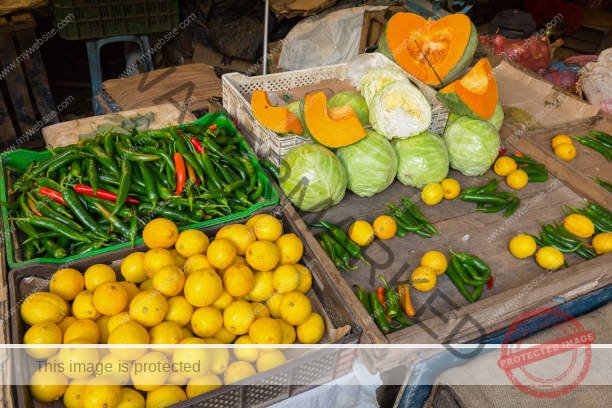Fes Culinary Journeys
Located in the middle of Morocco, Fes unfolds a scent of recipes and remarkable gastronomy tradition. Fes Culinary Journeys: it can be in a market, a discreet street, or a home. Fes Culinary Journeys is an exploration of an incredible new world every time a new turning of the alleys of the medina is unveiled, making it very exciting for anybody who loves food.
The Essence of Fes Culinary Journeys
Fes Culinary Journeys are not simply wine tasting tours; they are food adventures that can help you to find the spirit of Moroccan cuisine. More than sightseeing, these experiences take you a step further and let you appreciate the subtleties of the tastes, processes, and history that turn Fes into a culinary city.
Tasting the Flavors that Medina Hides
The medina of Fes, classified by UNESCO, is a quite amazing place of contrasts. Fes Culinary Journeys start here and take the visitors through the souks, where sellers arrange beautiful spices, fruits, vegetables, and other equipment to cook Moroccan meals. There is nothing like the smell of bread and tagines cooking, but now you can catch quick glimpses of the delights that await.
Hands-on Cooking Classes
Some of the Fes Culinary Journeys are hands-on cooking classes in which you can learn about Moroccan food right from the cooks themselves. These classes are held in the conventional riads; in this way, you will have a chance to see Moroccan-style homes. You’ll become knowledgeable in cooking basic Moroccan dishes such as light, fluffy couscous, aromatic tagines, or decadent pastries with nuts and honey.
Signature Dishes of Fes
Just would not be complete without trying out the specialties of the city that hosts it. Here are some must-try delicacies:
Pastilla: A Sweet and Savory Delight
This dish originates from Fes and is perhaps one of the city’s most sophisticated dishes. A pigeon or chicken stuffing cooked in spices, wrapped between thin pastry dough sheets, and finished off by dusting a mix of cinnamon and powdered sugar. One of the characteristics of Fes cuisine is the use of both savory and spicy flavors.
Tanjia: The Bachelor’s Dish
Said to be exclusive to Fes, this is a slow-cooked meat and spring onion dish usually cooked by bachelors and newlyweds. Meat is marinated with rez al-lemoun, saffron, and other spices, and then it is slow-cooked on a clay pot. Fes Culinary Journeys may involve the rite of the trip to the public ovens where tanjia is baked.
The Art of Tea and Coffee
A culinary guide is not complete if the visiting city’s tea and coffee services are not touched on in a particular city, and this is true for Fes. Tea, especially the Moroccan mint tea, which is usually prepared as part and parcel of the total welcome, is an innovation in itself. Here you will find the right way of making and serving this wonderful drink. Also, those who are connoisseurs of beverages will appreciate the possibility to taste the Moroccan coffee; normally it is seasoned with spices.
Street Food Adventures
Fes Culinary Journeys may also feature tours through the city’s diverse street fare offerings. Everything from the juicy kebabs to the crunchy bread stuffed with spicy meats, the street food of Fes gives a tasty and cheap experience. Do not leave the area without trying b’ssara, a thick fava bean soup that is a breakfast meal.
The dining in traditional restaurants
It is worth to emphasize, however, that besides stalls at Fes Culinary Journeys, there are many traditional restaurants in the city where it is possible to eat Moroccan banquets. These meals may comprise a series of salads, then tags, coucous dishes, and then a display of various sweet pastries.
This paper aims to identify the contributions of Fes City towards the evolution of Moroccan cuisine.
Moroccan cuisine has benefited a lot from the services offered by Fes. It will be pertinent to mention here that as you begin Fes Culinary Journeys, you will get to know about the historical significance of the city as an educational hub. This fact can be observed in courses of Fes and its contribution to the Moroccan cuisine, quite diverse in its elaboration.
Seasonal Specialties
Fes Culinary Journeys tend to focus on seasonal’s. During spring, it might offer courses, which include fresh favas and artichokes. Figs and melons are common in the summer, while accorders, quince, and pomegranate are at their best in the autumn. Recipes: meat stews and hot pot soups that can warm up both inside and outside in winter.
Beyond the Plate: Food as Culture
Fes Culinary Journeys are not just about the act of eating; they are a view into the Moroccan culture, Moroccan way of hosting, Moroccan family. You get to understand the necessities of sharing meals, how to use hands while eating, and even the taboos that you need to adhere to while eating.
Conclusion
Fes Culinary Journeys provide a starting point for getting to know Morocco via its taste and smell, as well as food patterns. From buying kilos of spices at souks, taking a cooking course in a Moroccan-style house, or enjoying a Morrocan banquet, these unique and arresting memories will make the flattening impact of the authentic floor-to-ceiling Moroccan cuisine. When you are back in your kitchen after organizing your Fes culinary tour, you are sure to have acquired some of the compartments that go along with embodying the Moroccan tradition within and outside the kitchen
FAQs
When is it best to do Fes Culinary Journeys?
Though ANY cuisine is great for the entire year, it is much more recommended to try it during the spring, particularly between March and May, and during autumn between September and November since this is when the ideal weather is and when the food is seasonal.
Which of them are Fes Culinary Journeys vegetarian?
Actually, most Fes Culinary Journeys are capable of hosting vegetarians. Moroccan cuisine has a wide selection of vegetable dishes; most tour operators are willing to make a change to accommodate a client’s diet.



